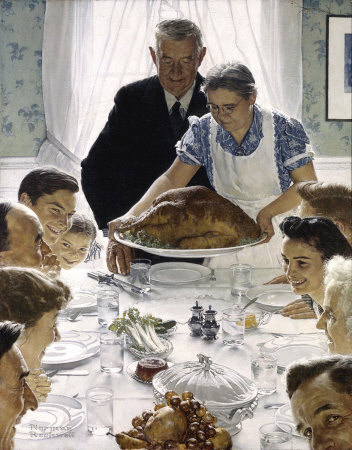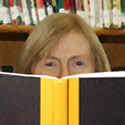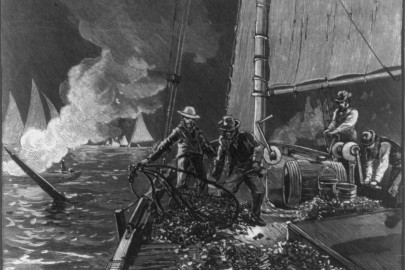Rita compares the American and British approaches to celebrating in November…
One of the oddest questions I’ve been asked since moving to the U.S. is “Do you celebrate Thanksgiving in England?” I resisted the temptation to answer “Yes, we celebrate that the Puritans left and took their repressive ban on dancing and merriment with them!”
More tactfully I said “No, but we have our own November holiday, Guy Fawkes Day.” That met with blank stares. So I explained that Guy Fawkes was a guy who plotted to blow up King James and the Houses of Parliament in 1605. “You mean you have a day to celebrate a domestic terrorist?” “No, no” I hastily corrected. “We burn him in effigy to celebrate the fact that he was captured and gruesomely executed.” It really wasn’t all so merry in Merrie Olde England.
During my childhood the Fifth of November didn’t have much to do with history any more. It was just a chance to light a big bonfire, set off fireworks, and eat toffee. To discover the real story of Guy Fawkes there is no better account than Antonia Fraser’s Faith and Treason: The Story of the Gunpowder Plot. As well as telling a gripping tale, this book demystifies the tangled politics and religious conflicts that the Puritans left behind when they set sail for the New World.
The modern American Thanksgiving also seems far removed from its historical origins. The oft-told story of the pilgrims, the Native Americans, and their feast of wild turkey and trimmings is a powerful myth with little more substance than the cardboard cutout figures American children create in nursery school at this time of year. The real history behind the myth is told in Mayflower: A Story of Courage, Community, and War by Nathaniel Philbrick. The truth is they didn’t really eat turkey and they weren’t really Puritans, but a different separatist group who thought the Puritans were a bit too liberal. And the peaceful coexistence between Europeans and Native Americans symbolized by that feast later exploded into a brutal war.
But despite the faux nature of the celebration I’ve come to love the Thanksgiving holiday and even conquer my initial suspicions of pumpkin pie (a dessert made with a vegetable?) The day isn’t really about history, or pilgrims, or the founding of a nation. It’s about the importance of family. For better or worse American extended families gather for a meal, perhaps the only one they will share all year, a meal that feels like a sacred ritual, but one that everyone, regardless of religion or cultural background, can fully embrace. And for that we can all give thanks.













I’ve always been jealous of the americans and their day of thanksgiving, looks like a nice day (and a great way to break up that long period of work between august bank holiday and xmas). I like days that celebrate families joining together
(being a pedant here Rita, but technically pumpkin is a fruit, as are all cucurbits. Interestingly in relation to talk of the early american settlers, wikipedia tells me that the name ‘squash’ for marrows/pumpkins etc derives from ‘askutasquash’ (a green thing eaten raw), a word from the Narragansett language, which was documented by Roger Williams, the founder of Rhode Island, in 1643. The word Pumpkin however comes from greek pepon)
When an American poses the question “Do you celebrate Thanksgiving?” to an Englishman I thought the stock response was – “Yes, on the fourth of July.”
I don’t know, Worm, two Christmas dinners within weeks of each other seems excessive.
I can top the “Do you celebrate Thanksgiving in England?” question. When working in a children’s summer camp in North Carolina, my wife was asked by one of the kids: “What language do you speak in England?”
Was that in the lift on the way to your flat? Or whilst you were rummaging in your boot to change your tyre? In queue at the take-away or down at the local whilst you were having a fag and a pint? Did you kick the cheeky tosser in the arse or pull down his nappy? Was his mum a bird you were snogging? Enquiring minds want to know. Ta.
David, there is clearly no end to your talents. Brilliant.
Thank you very much, but I must admit that this is a bit that Brit and I worked up years ago when we were on the music hall stage, and still pull out every once in a while at fancy dress parties.
I’ll tee em up, you hit em.
“What language do you speak in England?” It’s a good question, I find, after years of working in something called “co-edition publishing”, in which books are brought out simultaneously on both sides of the Atlantic with slightly different, localized, text. When I started, “mail” and “trash” felt like slightly exotic Americanisms for “post” and “rubbish”. Now they’re just part of global cyberspeak. Such is the fascination of change.
But what I really want to know is, do people really sing (or should I say perform?) “Alice’s Restaurant” at Thanksgiving?
Apropos of nothing, I really like the chap peeping, bottom right, on the Rockwell picture.
Yes I like that very much too, and always have since seeing this picture in a 1950’s National Geographic as a kid. It’s not often that you see art that breaks the fourth wall so realistically and engagingly
I think I can match the “what language do you speak in England?” question.
A man once told me how he had a lot of time for the English as they’d helped the Americans get rid of the British.
Weirdly, that’s sort of true.
True, though I don’t think he was making quite so sophisticated a point.
As long as we’re being pedants, the Puritans never banned dancing and, in fact, wore colo[u]rful outfits as was the style in England at the time.
I saw the John Adams series, and the bourgeois revolutionaries there were totally affronted that their rights as Englishmen were being traduced. They were Magna Carta Englishmen through and through.
I didn’t watch the John Adams series, any good?
You could also go all Linda Colley and make the reverse point that getting rid of the English helped the formation of a British identity following the revolution.
The chap I was talking to, however, was unforgivably getting the English mixed up with the French. I’d have thrown him out of my apartment if he hadn”t been helping me move into it at the time.